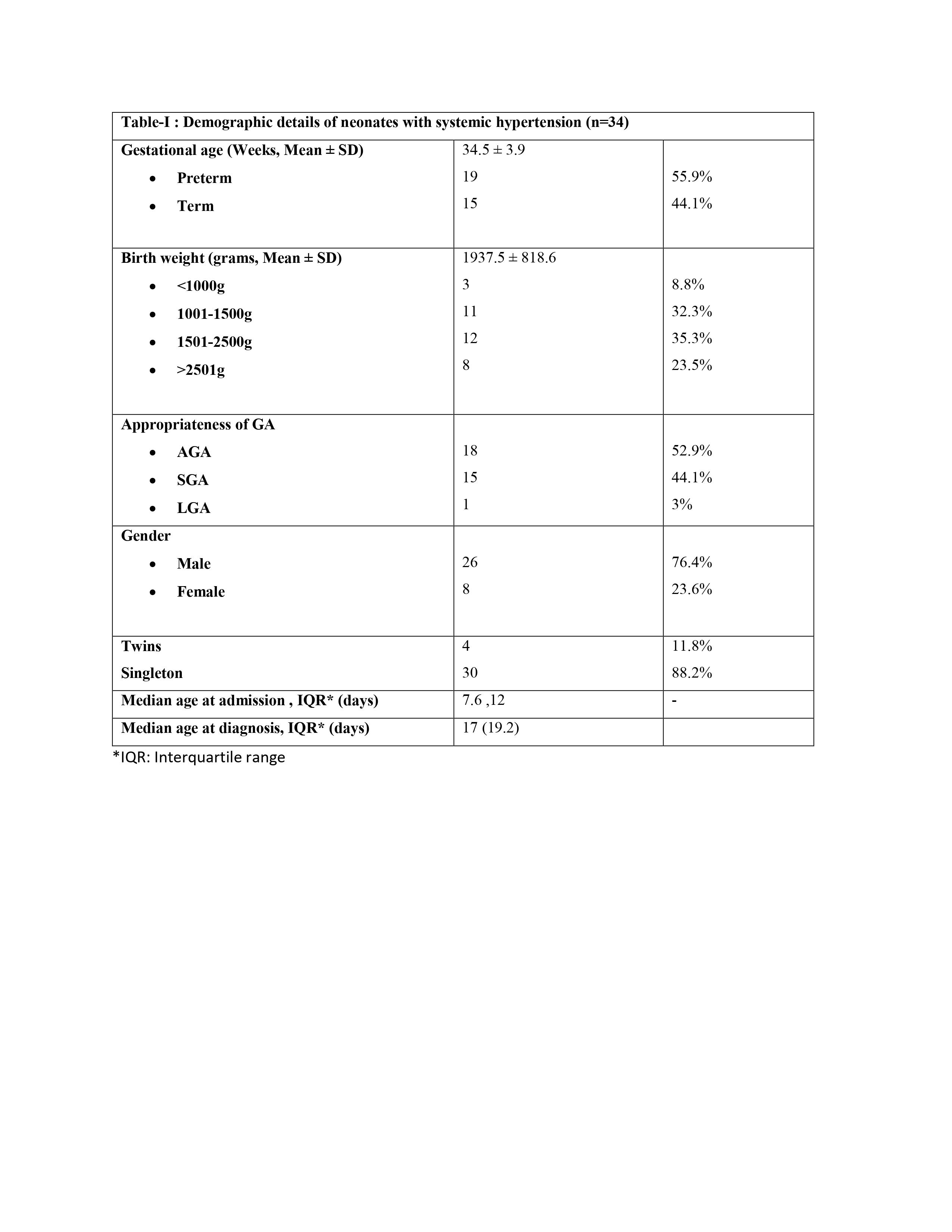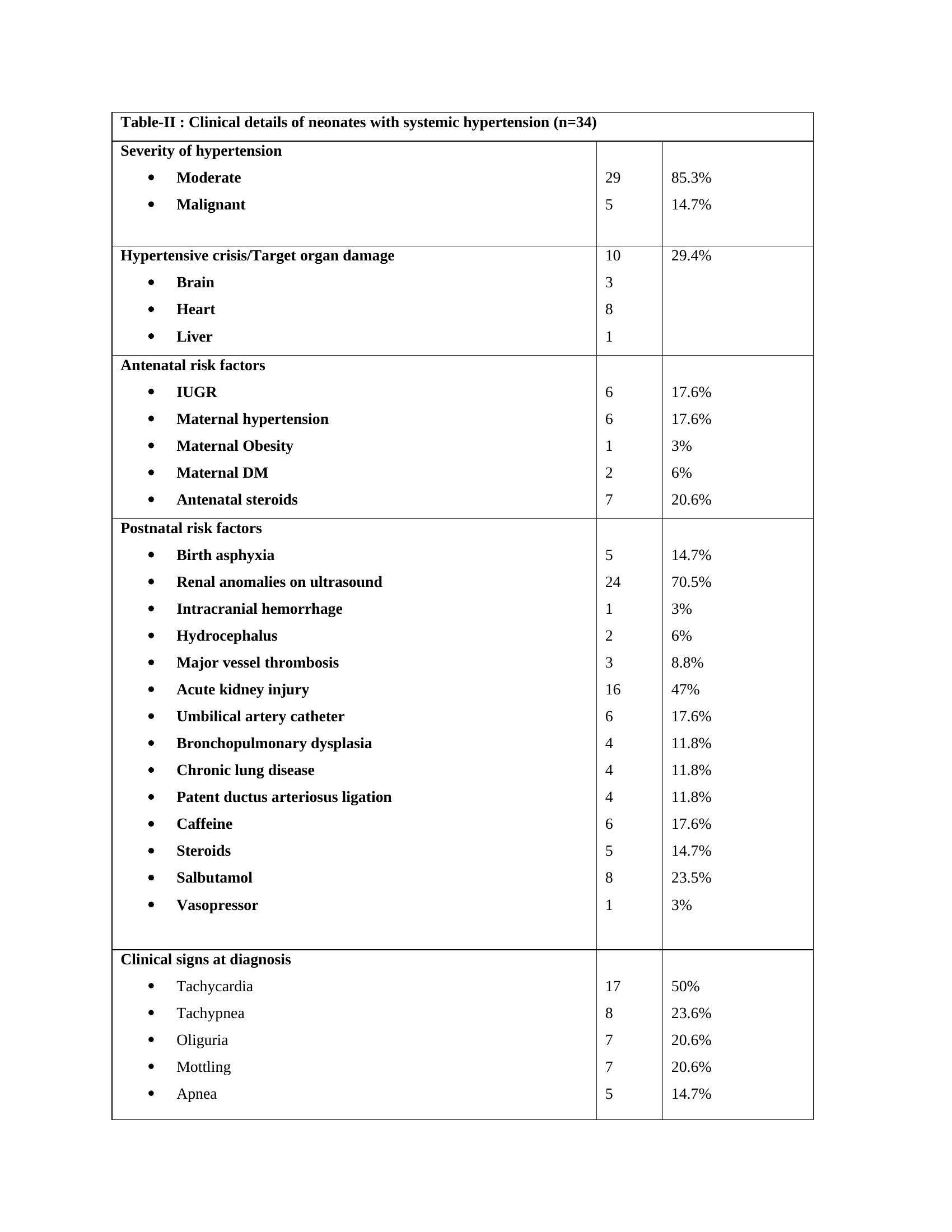Hypertension
Hypertension 2
23 - Caring for the hypertensive newborn: A prospective evaluation of risk factors, clinical profile, management, and predictors of outcome
Publication Number: 23.322
- AA
Astha Amrit, DrNB (she/her/hers)
Student
B. J. Wadia Hospital for Children
Mumbai, Maharashtra, India
Presenting Author(s)
Background:
Neonatal Hypertension (NHT) is an underrecognized entity causing target organ damage and risk of renal dysfunction later in life. However, its diagnosis and management still remain challenging and there is lack of evidence on factors predicting its severity and on the persistence of hypertension beyond the neonatal period.
Objective:
This study aimed to identify risk factors, clinical profile, predictors of severity of hypertension, and short-term outcome of NHT.
Design/Methods:
A cohort of neonates diagnosed with hypertension requiring pharmacotherapy from September 2019 to July 2021 were prospectively studied and followed-up for the persistence of hypertension at 3, 6 and 12 months of age.
Results:
Of 1682 neonates admitted during this period, 34 had hypertension requiring pharmacotherapy, with a hospital incidence rate of 2%. Of these, 19(55.9 %) were preterm, 14(41.2%) very low birth weight, and 15(44.1%) were small for gestational age. Malignant hypertension was seen in 29 (85%) cases and moderate hypertension in 5 (14.7%) cases, and target organ damage (heart, brain, liver) seen in 10 (29.4%) cases. On univariate and multivariate regression, an increasing total number of postnatal risk factors was an independent predictor of the occurrence of hypertensive crisis(OR=3.5, p=0.04; 95% CI 1.06-11.42). A significant positive correlation(p=0.004) was observed between total number of postnatal risk factors and duration of hospital stay. Renal causes of hypertension were identified significantly earlier(day 14 vs. 23, p=0.01, 95% CI 2.5-17) and had shorter hospital stay(24 vs 45 days, p=0.002, 95% CI 8-34). At 3 months follow up, 7 (20.6 % ) babies were still requiring antihypertensive therapy, and 1 (3%) required antihypertensives at 12 months of age.
Conclusion(s): Hypertension was seen in preterm, low birth weight neonates and associated with certain maternal and postnatal risk factors with majority responding to single drug. Neonates with multiple comorbid illnesses need careful monitoring for hypertension and are at a higher risk of developing hypertensive crisis. Majority of NHT cases were normotensive at the time of discharge and did not require pharmacotherapy beyond neonatal period

.png)
